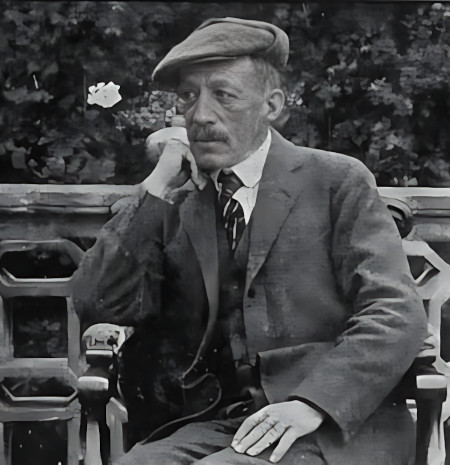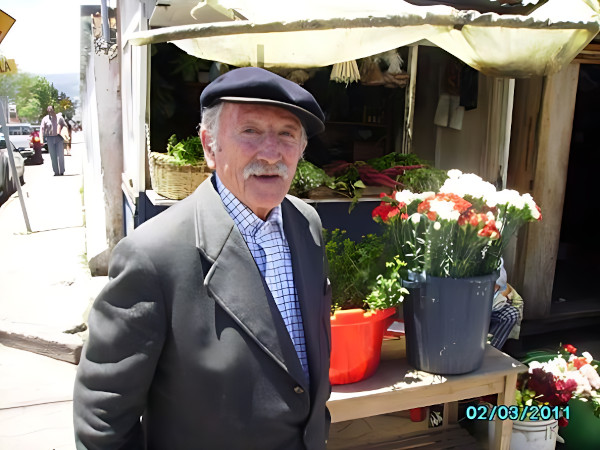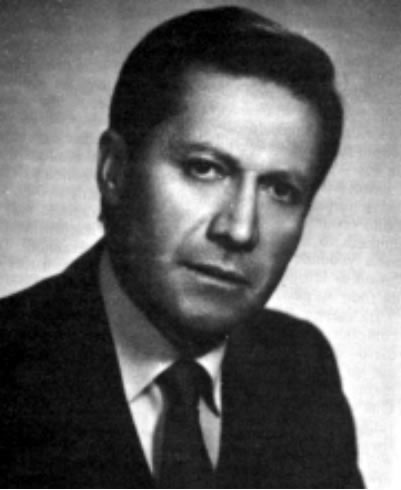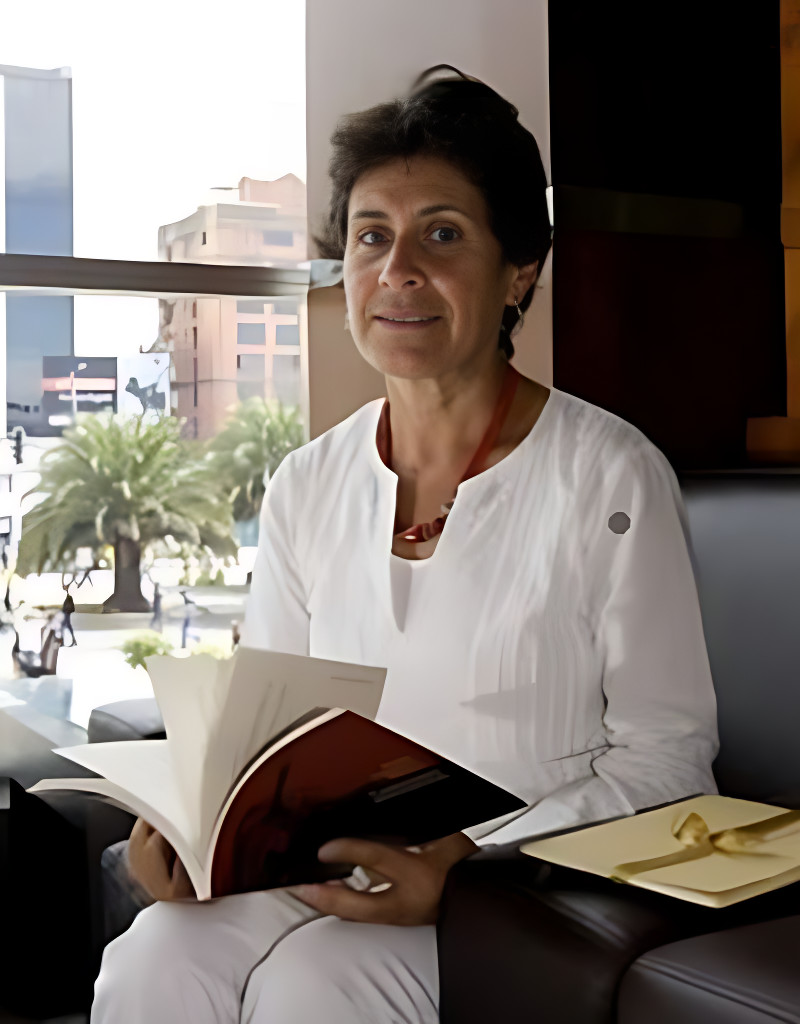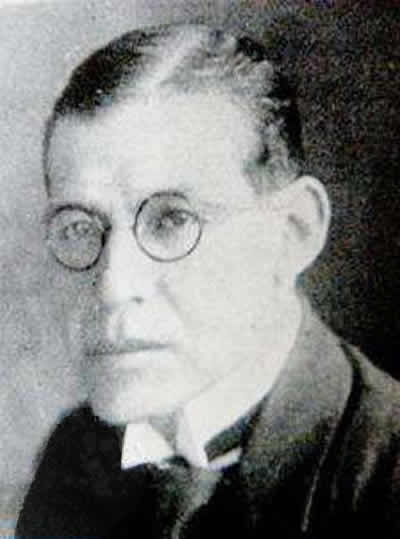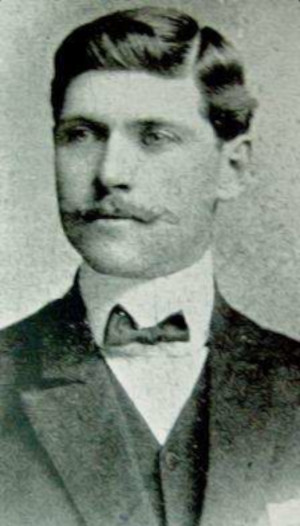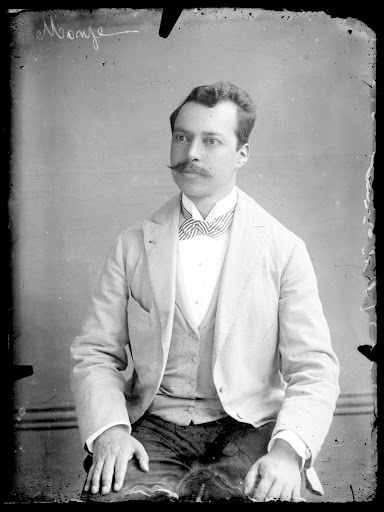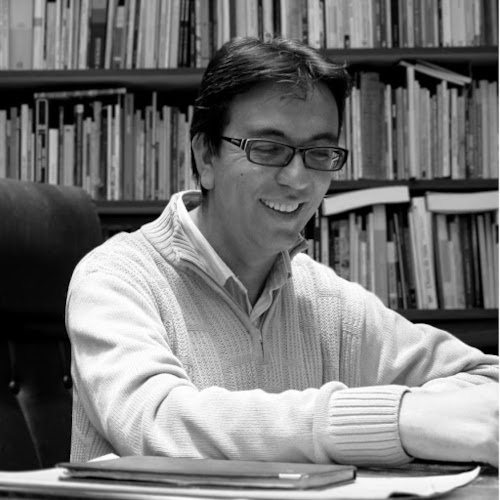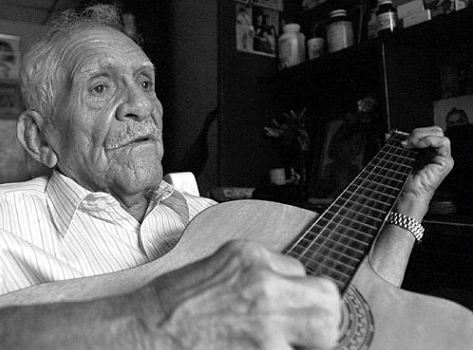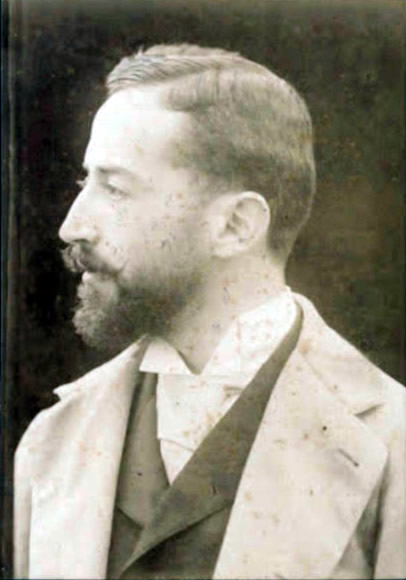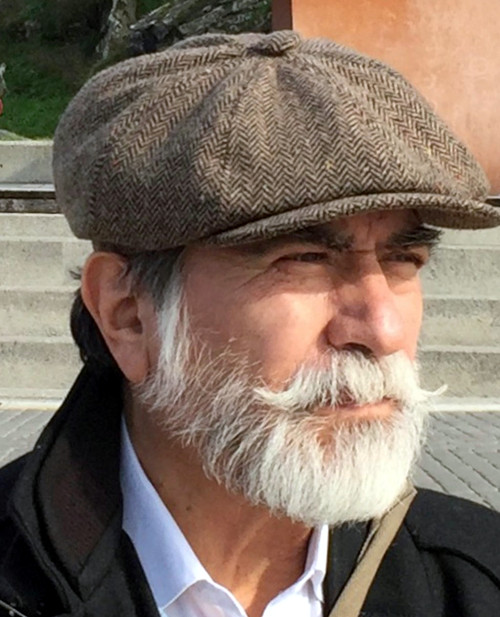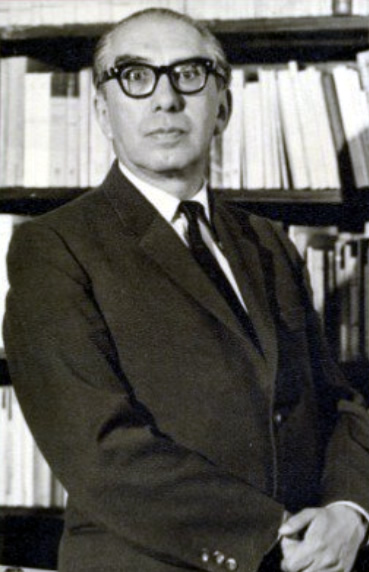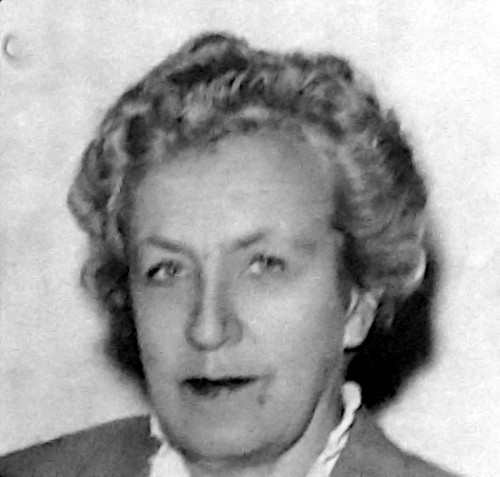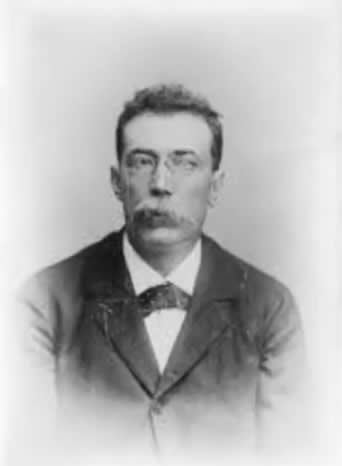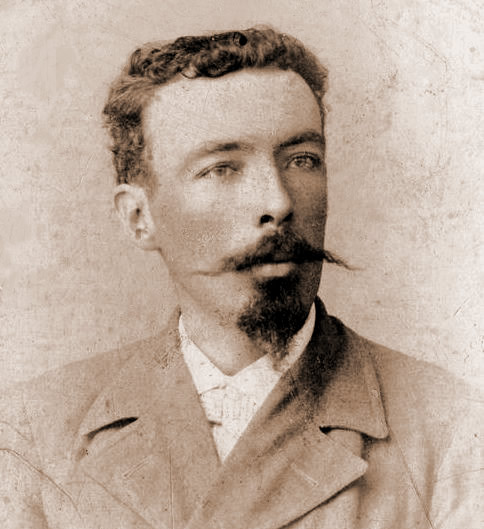Anacarsis Martínez Holguín (Ambato, July 16, 1862 – Ambato, April 1930) was an Ecuadorian writer, satirist, journalist, and politician known for his liberal activism and pioneering efforts in Ecuador’s early wine industry. Born into a prominent family, he was influenced by European intellectual traditions and pursued his education with the Jesuits in Quito. Martínez co-founded the anarchist newspaper El Combate and later launched La Avispa, a satirical publication that sharply critiqued Ecuador’s political elite. Throughout his career, he held positions as Deputy and Governor of Tungurahua, and although he was offered ministerial posts, he declined them, preferring independence. His work extended to managing the family’s Catiglata vineyard, where he applied winemaking techniques he had studied in France. Martínez’s writings, including his satirical novel El desfalco, provided pointed commentary on Ecuadorian society, solidifying his legacy as a bold voice for liberalism in early 20th-century Ecuador.
Continue reading “Anacarsis Martínez”Category: Writers from Ambato
Guillermo Ríos Andrade
Guillermo Ríos Andrade (Ambato, November 10, 1924 – September 19, 2018) was an Ecuadorian poet and an active member of the House of Ecuadorian Culture, which published several of his poetry collections, including: “La aurora no es de todos” (1961), “La raíz del alba” (1972), and “Un eclipse total” (1974). At least two schools in Ecuador’s Pichincha province bear his name. The Mexican writer Alfonso Reyes, who the Argentine writer Jorge Luis Borges called “the greatest prose writer in the Spanish language,” was a great admirer of Ríos’ poetry and wrote articles about him.
Continue reading “Guillermo Ríos Andrade”Alfonso Barrera Valverde
Alfonso Barrera Valverde (Ambato, 1929 – September 6, 2013) was an Ecuadorian diplomat, poet, novelist, and non-fiction writer. Some of his notable works include his account of the Paquisha conflict, “Hombres de paz en lucha” (1982), the novel “Sancho Panza en América” (2005), and the children’s novel “El país de Manuelito” (1984). He served as ambassador to the Dominican Republic, Spain, Canada, Germany, and Argentina, and he also served as Ecuador’s Minister of Foreign Affairs.
Continue reading “Alfonso Barrera Valverde”Jennie Carrasco Molina
Jennie Carrasco Molina (Ambato, 1955) is an Ecuadorian novelist, short story writer, poet, journalist, editor, university professor and holistic therapist. She has worked with the press and on women’s issues. Her works include the short story collection “La diosa en el espejo” (1995), the poetry collection “Arañas en mi vestido de seda” (2001), and the novel “Viaje a ninguna parte” (2004). In 2011 her poetry collection “Confesiones apocalípticas” won the prestigious Jorge Carrera Andrade Prize. Some of her poems have been translated into English.
Continue reading “Jennie Carrasco Molina”Sergio Nuñez
Sergio Núñez Santamaría (Santa Rosa, Ambato, October 7, 1896 – Quito, 1982) was a novelist, short story writer, poet, playwright, literary critic and pedagogue. As a poet, he wrote in verse and prose, and was greatly influenced by the modernismo literary movement of Ruben Dario of Nicaragua. In 1918 he published his first poetry book, “Hostias de fuego,” with a prologue by Medardo Ángel Silva. He belonged to the “30 Generation,” a group of authors from the 1930’s Ecuador who used social realism in their fiction to denounce how Indians were treated in Ecuador. His novellas “Juego de hacienda” and “Circunferencia” are considered Indigenista fiction. A private school in Guayaquil bears his name.
Continue reading “Sergio Nuñez”Alfonso Moscoso
Alfonso Moscoso Sánchez (Ambato, January 22, 1879 – Quito, June 26, 1952) was an Ecuadorian poet and history professor. He belongs among the first writers to use modernismo in their poetry. Graduated in jurisprudence, he held the positions of Minister of the Supreme Court of Justice, Deputy, and Private Secretary of General Leónidas Plaza during his presidency. Although few of his poems exist, they are masterfully written. A modest and simple man, he was always reluctant to publish his poems. Most of his production is found in the books Vidriecitos de colores (1945) and Azabaches (1951). His famous poems are: “Los Aserradores,” “Suspirillos germánicos,” “Saudade,” “El viejo de la esquina” and “Relieve.”
Continue reading “Alfonso Moscoso”Celiano Monge
Celiano Monge Navarrete (Ambato, December 15, 1856 – Quito, November 21, 1940) was an Ecuadorian poet, historiographer, journalist, politician, educator, and founder of various newspapers. He taught philosophy, rhetoric, mathematics and experimental physics in schools in Quito, Latacunga and Ambato. He occupied important positions within the teaching profession: he was the Director of Education of the Tungurahua and Pichincha Provinces; and later he was appointed Member of the Superior Council of Public Education. He was the secretary of the Ecuadorian Academy of Language and the director of the National Academy of History. In 1939 Monge was named “Ambato’s favorite son and official chronicler.”
Continue reading “Celiano Monge”Xavier Oquendo Troncoso
Xavier Oquendo Troncoso (Ambato, 1972) is an Ecuadorian poet, editorial writer, editor and professor. He has published over 11 titles, including poetry, short stories, children’s literature and anthologies of young writers from Ecuador. In 1993 he won the Pablo Palacio Short Story Award and the National Poetry Award. In 1999 the city of Ambato awarded him the Juan León Mera Award for all his literary work. His book “Salvados del naufragio” (2005) is a compilation of his poetry from 15 years of work up to the year in which it was published. His poems appeared in English translation in a book entitled “Poems That Love Me” (2016), translated by Gordon E. McNeer. Some of his poems have also been translated into Italian and Portuguese.
Continue reading “Xavier Oquendo Troncoso”Gustavo Egüez Villacreses
Gustavo Egüez Villacreses (Ambato, March 26, 1923 – Guayaquil, May 29, 1981) was a poet and writer. Egüez received several awards for his poetry: In 1952 he won First Prize of the newspaper Diario La Nación (Guayaquil) for his poem “Romancero de Navidad′′ and he was bestowed the Gilded Orchid in the floral games of the magazine Radial Vida Porteña.
Continue reading “Gustavo Egüez Villacreses”José Trajano Mera
José Trajano Mera Iturralde was an Ecuadorian poet, playwright and diplomat with a literary and cultural heritage. He was born in Ambato in 1862 and died in Guayaquil in 1919. His father was the famous author Juan Leon Mera who wrote Ecuador’s first novel Cumanda (1877) and the Ecuadorian national anthem (1865). Trajano earned a degree in jurisprudence from the Central University of Ecuador. He died in Guayaquil in 1919 while holding the position of Undersecretary of the Ministry of Foreign Relations.
Continue reading “José Trajano Mera”Iván Oñate
Iván Oñate (Ambato, Ecuador, 1948) is an Ecuadorian poet and fiction writer. He has published 8 poetry books and 2 short story books, and his works have appeared in various anthologies.
Continue reading “Iván Oñate”Pablo Balarezo Moncayo
Pablo Balarezo Moncayo (Ambato, 10 December 1904 – 23 January 1999) was an Ecuadorian poet, journalist and essayist. He was active in the literary and cultural circles of his native city, Ambato, and in those of Quito, Cuenca and Guayaquil. In Guayaquil, in 1934, he directed the Sunday Literary Supplement of the newspaper El Universo. He was named Director of the House of Montalvo in 1966 and Director of the National Library in 1972.
Continue reading “Pablo Balarezo Moncayo”Blanca Martínez Mera
Blanca Martínez Mera de Tinajero (Ambato, October 5, 1897 – Ambato, June 20, 1976) was an Ecuadorian writer and teacher. With the publication of her book En la paz del campo in 1940, she became the first woman to publish a novel in Ecuador. Her parents were the writer Luis A. Martínez (1869–1909) and Rosario Mera Iturralde, the daughter of the writer Juan León Mera (1832–1894). Later in life she became the director of the Casa de Montalvo, a museum and cultural center in Ambato, whose eponymous magazine she edited for many years. A school in her hometown bears her name in honor of her memory.
Continue reading “Blanca Martínez Mera”Juan Benigno Vela
Juan Benigno Vela Hervas (Ambato, July 9, 1843 – Ambato, February 24, 1920) was an Ecuadorian politician, lawyer, journalist, and writer. A key figure in Ecuador’s liberal movement, he was known for his staunch opposition to the conservative regimes of Gabriel García Moreno and Ignacio de Veintemilla. Despite losing his sight and hearing later in life, Vela continued his fight for civil liberties through his work in journalism and politics, contributing to the drafting of Ecuador’s 1906 Constitution. He founded several influential newspapers, including El Combate and El Espectador, and remained a vocal advocate for education and democracy throughout his life.
Continue reading “Juan Benigno Vela”Luis A. Martinez
Luis Alfredo Martínez Holguín (Ambato, June 23, 1869 – Ambato, November 26, 1909) was an Ecuadorian writer, painter, politician, and agriculturist. His novel A la Costa (1904) is considered a masterpiece of Ecuadorian literature and one of the earliest works of realism in the country. In addition to his literary achievements, Martínez was a skilled painter, with several of his best works housed internationally, including in the United States Library of Congress and the Vatican Museum. Politically, he opposed the government of Eloy Alfaro and was involved in the resistance against liberal guerillas in the 1890s.
Continue reading “Luis A. Martinez”
